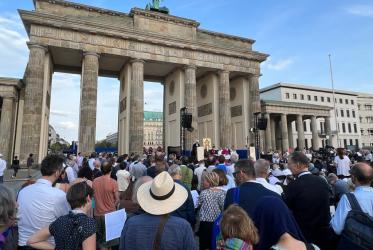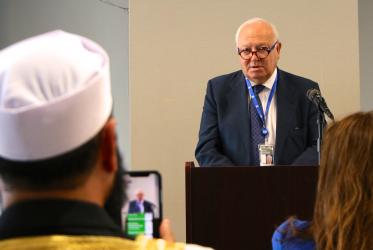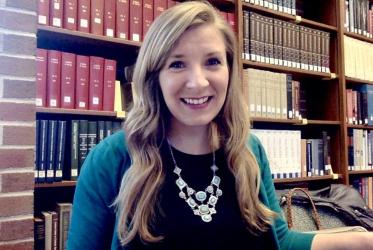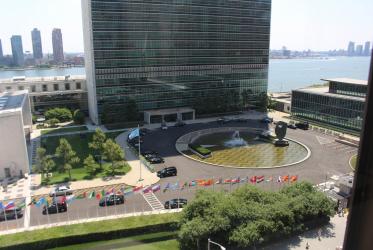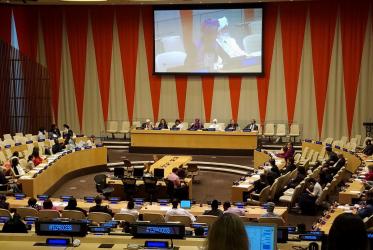Displaying 1 - 20 of 50
"A world free from nuclear weapons is possible"
11 September 2023
WCC well-represented in Religions for Peace leadership
07 October 2019
Worshipping safely: UN, faith communities unite to prevent violence
20 September 2019
Dr Saïd Ailabouni: God is on the side of rejected, oppressed, occupied
12 September 2019
Religions for Peace assembly convenes in Lindau
19 August 2019
Peacemakers at work in Sri Lanka
29 April 2019
A moment in ‘Time’: an interreligious vision in Erlangen
20 December 2018
Faces of Hope raises awareness
07 March 2018
WCC to co-host public event on migration and displacement at UN
17 January 2018
